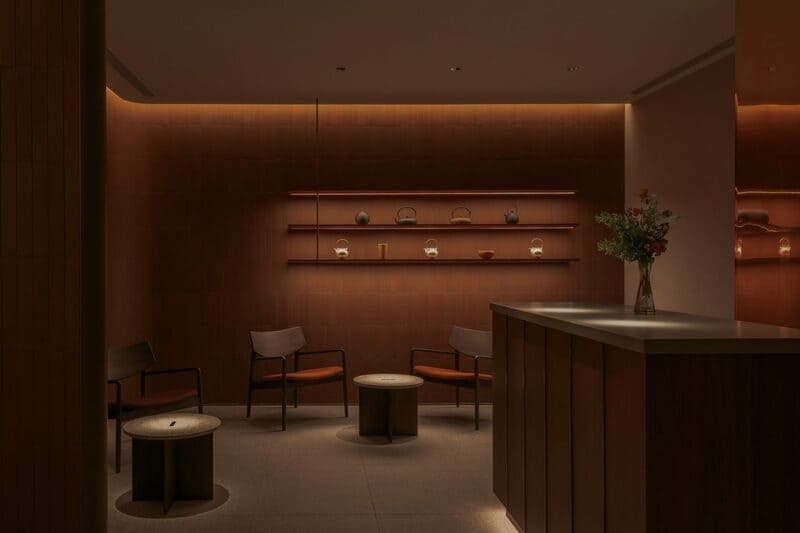
Keiji Ashizawa Designs the Logy Restaurant in Taipei
Amy Duong — April 29, 2025 — Art & Design
Architect Keiji Ashizawa led the design of the Logy restaurant in Neihu, Taipei. It is defined by warm and earthy tones backed by materials of the same nature. It is made as a nod to the Taiwanese and Japanese ingredients used by chef Ryogo Tahara in his cooking. The space is made for intimate dining experiences amongst guests. They enter through a waiting area with brick cladding and downlit teapots.
Ashizawa explained to Dezeen, "This restaurant is devoted to culinary innovation, using only the finest ingredients sourced from Taiwan, Japan, and across Asia. We believed that the space needed to harmonise with the indigenous ingredients he carefully selects. The plastered walls, brick elements, and lighting fixtures inspired by bamboo all reflect this concept. Designed for intimate dining experiences that unfold over two to three hours, the restaurant creates a sense of privacy within the elegant, high-ceilinged space."
Image Credit: Tomooki Kengaku
Ashizawa explained to Dezeen, "This restaurant is devoted to culinary innovation, using only the finest ingredients sourced from Taiwan, Japan, and across Asia. We believed that the space needed to harmonise with the indigenous ingredients he carefully selects. The plastered walls, brick elements, and lighting fixtures inspired by bamboo all reflect this concept. Designed for intimate dining experiences that unfold over two to three hours, the restaurant creates a sense of privacy within the elegant, high-ceilinged space."
Image Credit: Tomooki Kengaku
Trend Themes
1. Earthy Design Aesthetics - The incorporation of natural materials and warm tones in restaurant design highlights a shift towards creating spaces that harmonize with culinary themes.
2. Culinary Culture Fusion - A focus on integrating Taiwanese and Japanese ingredients and aesthetics speaks to a growing trend of cross-cultural culinary experiences.
3. Intimate Dining Experiences - Restaurants are increasingly designing spaces for prolonged, private dining sessions, enhancing the personal nature of the dining experience.
Industry Implications
1. Hospitality Design - Architectural approaches emphasizing natural materials are reshaping the visual narratives within hospitality environments.
2. Gourmet Dining - The fusion of international ingredients and cooking methods is transforming the traditional fine-dining landscape, appealing to global palates.
3. Sustainable Architecture - Utilizing indigenous materials and minimalistic design principles is influencing the sustainable building movement within the restaurant industry.
5.3
Score
Popularity
Activity
Freshness
























